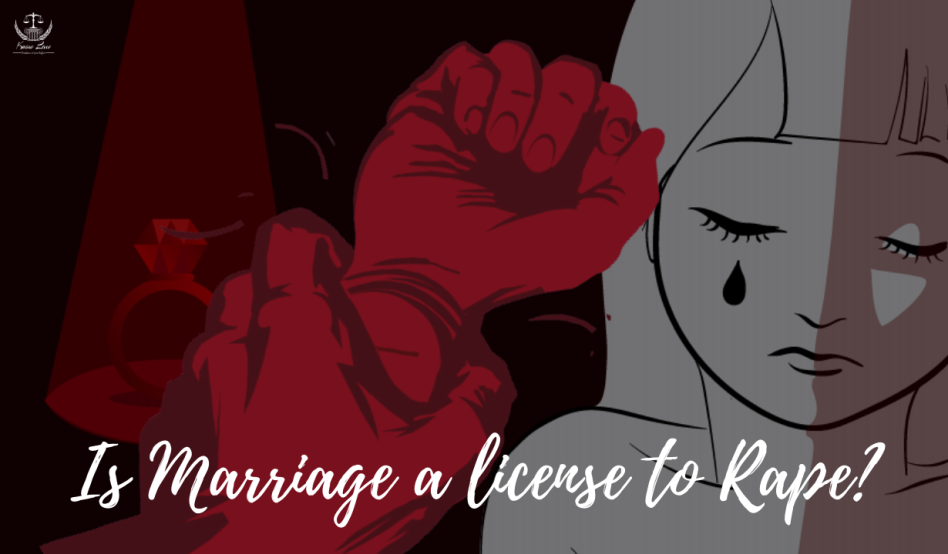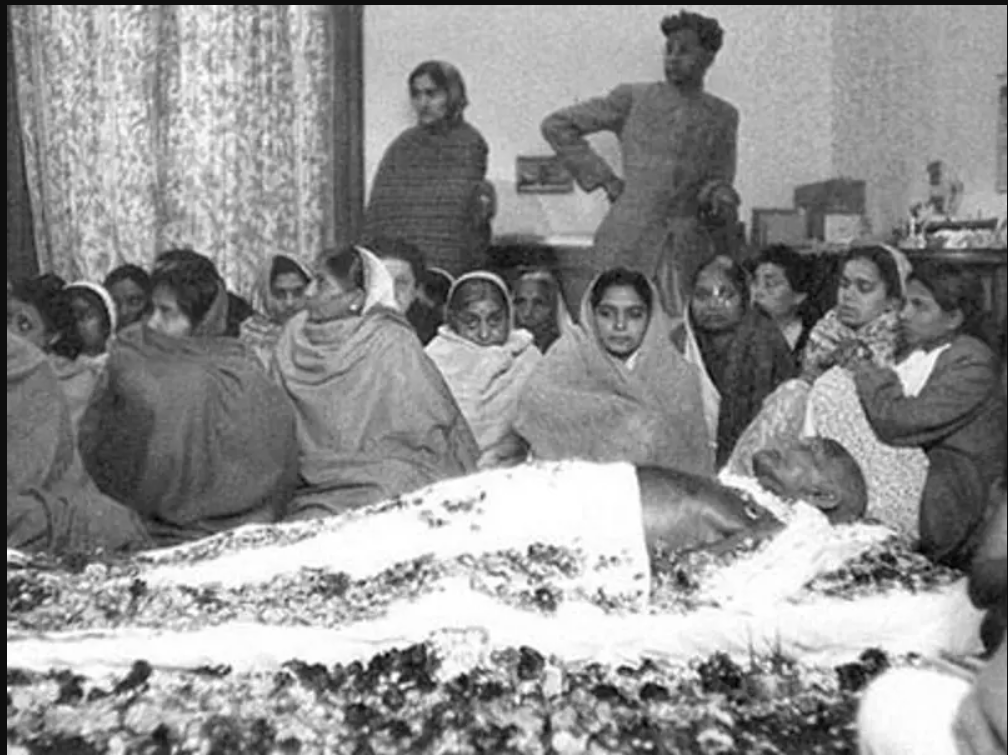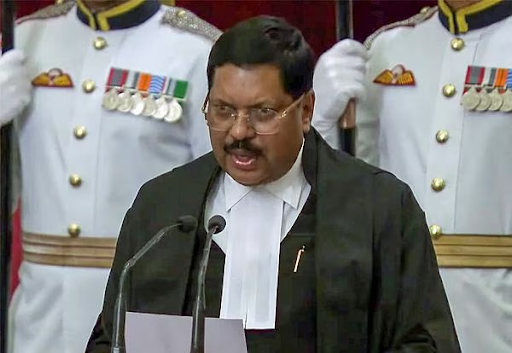Description

Copyright infringement not intended
Context - The Delhi High Court produces a divided judgment on the criminalisation of Marital rape.
Details
- The Delhi High Court delivered a divided opinion on the petitions seeking the criminalisation of marital rape.
- One judge said “legitimate expectation of sex” is an “unalterable” aspect of marriage.
- Others said that the “right to withdraw consent at any given point in time forms the core of the woman’s right to life and liberty”.
- The Court has struck down an exception in the law that protects men who have non-consensual intercourse with their wives, from criminal prosecution under IPC section 376 (punishment for rape).
- IPC Section 375 that defines rape carries a crucial exemption: “Sexual intercourse or sexual acts by a man with his wife, the wife not being under eighteen years of age, is not rape.”
- The court has highlighted in the verdict that the forced sex outside marriage is ‘real rape’ and that the same act within marriage is anything else but rape”.
- The Court also mentioned that every incident of non-consensual sex of a man with a woman is not rape.
About Marital Rape
- Marital rape is the act of sexual intimacy without the consent of the spouse.
- The lack of consent is the key element and it might not involve physical violence.
- Marital rape is also considered domestic violence and sexual harassment.
Global Scenario
- In the Past, Sexual intimacy was viewed as the right of the spouse within the marriage.
- At the end of the 20th century and especially since the 1980s, women's rights groups demanded complete sexual autonomy over their bodies, including the rights within the marriage.
- These demands have been accepted by many governments, and at present marital rape has been criminalized by more than 150 countries.
- In some countries, marital rape is specifically criminalized through a separate law; in other countries, the rape law makes no distinction between rape by one's husband or rape by anyone else.
- In a few countries, marital rape was criminalized due to a court decision.
- In a few of those countries that do not criminalise marital rape, such as Malaysia, a husband can still be punished if he uses violence to have sex with his wife.
- Still, there are many countries, where marital rape either remains outside the criminal law or is illegal but widely tolerated.
Indian Scenario
- According to the National Health and Family Survey (NFHS-4), 5.4% of women have experienced marital rape. According to some activities, these numbers are far from accurate due to under-reporting.
- According to National Crime Records Bureau’s (NCRB) report, about 70% of women in India are victims of domestic violence, a woman is raped every 16 minutes, and every four minutes, she experiences cruelty at the hands of her in-laws.
- A study by the National Family Health Survey (NFHS) indicates that an estimated 99% of sexual violence cases go unreported, and an average Indian woman is 17 times more likely to face sexual violence from her husband than from others.
- In India, there is no provision under any law related to marital rape. India is one of the 32 countries in the world that has not criminalized marital rape.
- Section 375 of the Indian Penal Code (IPC) criminalizes the offence of rape, but exception 2 of Section 375 excludes cases within the marriage.
- The Kerala High Court passed the judgment that marital rape, although not penalized in India, could be accepted as a valid reason for divorce.
- The Verma Committee also recommended criminalization of marital rape should be followed by some changes in the attitude of prosecutors, police officers and the society at large.
The step taken by the Government
- The government enacted the Protection of Women from Domestic Violence Act, of 2005’ to protect women from domestic violence; it also includes provisions against sexual violence.
- The Dowry Prohibition Act, 1961’.
- The Prohibition of Child Marriage Act, 2006’.
- An online analytic tool “Investigation Tracking System for Sexual Offences” to monitor and track time-bound investigations in sexual assault cases.
- “National Database on Sexual Offenders” (NDSO) has been launched by MHA to facilitate the investigation and tracking of sexual offenders across the country by law enforcement agencies.
- Emergency Response Support System (ERSS) provides a single emergency number.
- ‘One-Stop Centre’ to facilitate access to an integrated range of services including medical aid, police assistance, legal aid, psychosocial counselling and temporary support services to women affected by violence.
The argument in Support of Criminalizing Marital Rape
- Marital rape violates several fundamental rights under Articles 14, 15, 19, and 21 of the Constitution.
- Rape by a husband is more emotionally and physically damaging than rape by a stranger. When a woman is raped by a stranger, she has to live with a frightening memory but when she is raped by her husband, she has to live with the rapist.
- Marital rape is a criminal offence in more than 150 countries, including the United Kingdom, whose common law was followed by India during the colonial period.
- Marriage is a social contract of a lifelong equal relationship and not a one-time consent to everything.
- The legal exception to the rape laws gives men unequal privilege.
The argument against Criminalizing Marital Rape
- According to some people, it may destabilise the institution of marriage apart from being an easy tool for harassing the husbands. They present the example of "Rising misuse of Section 498A of IPC", known as the dowry law.
- Other countries, mostly western, have criminalized marital rape does not necessarily mean India should also follow them blindly.
- A woman has several other legal provisions that she can take the help of if she is being abused in marriage.
- Married Women are covered in the “Protection of Women from Domestic Violence Act 2005” and thus there is no need for a special law to cover marital rapes.
- The judgment as to whether it is a marital rape or not will singularly rest with the wife. There is no way a Husband could prove his innocence.
- A section of society feels that once marital rape is criminalized, it may lead to the filing of false charges against husbands. They also think that it will be very difficult for the police to prove such cases as everything happened in a private space, how will a husband prove that consent was taken?
Challenges
- Forced marriage and child marriage are common in many parts of the world, especially in parts of Asia and Africa. These types of marriages are connected with a higher rate of domestic violence, including marital rape.
- Discussing sexual matters in many cultures is taboo. The Concept of consent is not understood in many societies.
- Most cases focused on wives as victims of marital rape, but husbands experience marital rape as well. Studies suggest that men and women have nearly the same annual rates of victimisation of violence by a marital partner.
- The present debate on marital rape reflects a biased view against the husband as it stigmatizes the wife as a victim and the husband as a Culprit, the present debates are diverted from the larger topic of violence in marriage.
Way Forward
- In the modern social order, spouses in a marriage are treated as equal partners and the husband cannot claim any superior right over the wife either with respect to her body or with reference to individual status.
- The Union government should consult State governments, as criminal law is under the concurrent list and implemented by states —and given the vast diversity in cultures across states.
- Factors like literacy, lack of financial empowerment of the majority of females, the mindset of the society, vast diversity, and poverty. etc., should be considered carefully before making any decision.
- The importance of consent needs to be taught in schools and colleges, and also through awareness campaigns. Promote "moral and social awareness" to stop such acts.
- In the modern world, marriage must not be seen as the union between male and female only, while taking any decision about the future law, we must also need to recognize the victimization of partners in all types of marriages, including marriages among LGBT (lesbian, gay, bisexual, and transgender), and also the rights of a partner in a live-in relationship.
- Government should come up with a gender-neutral law, that addresses the concerns of all stakeholders. Only a gender-neutral law could ensure equality in our society.
https://www.google.com/amp/s/indianexpress.com/article/cities/delhi/delhi-high-court-split-verdict-petitions-seeking-criminalisation-of-marital-rape-7911335/lite/














